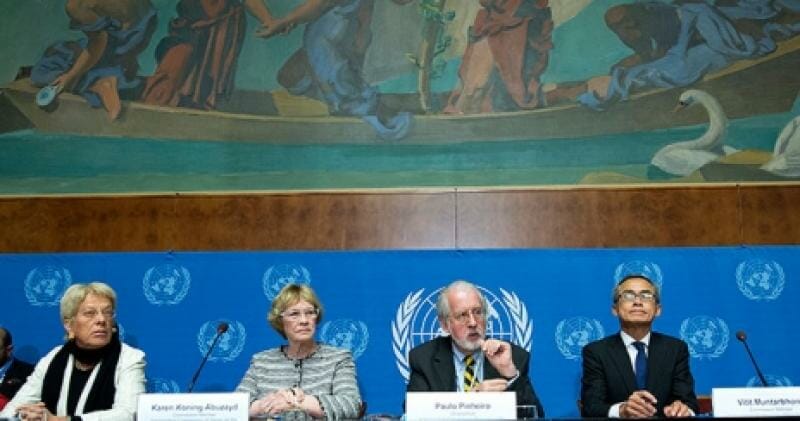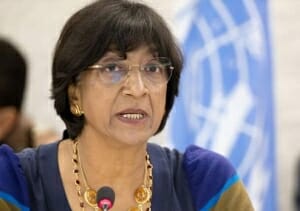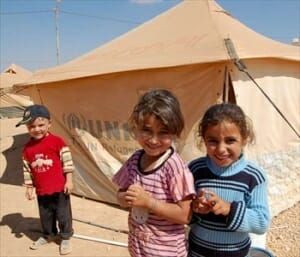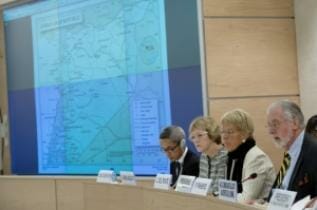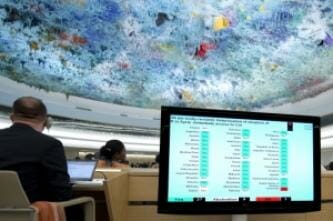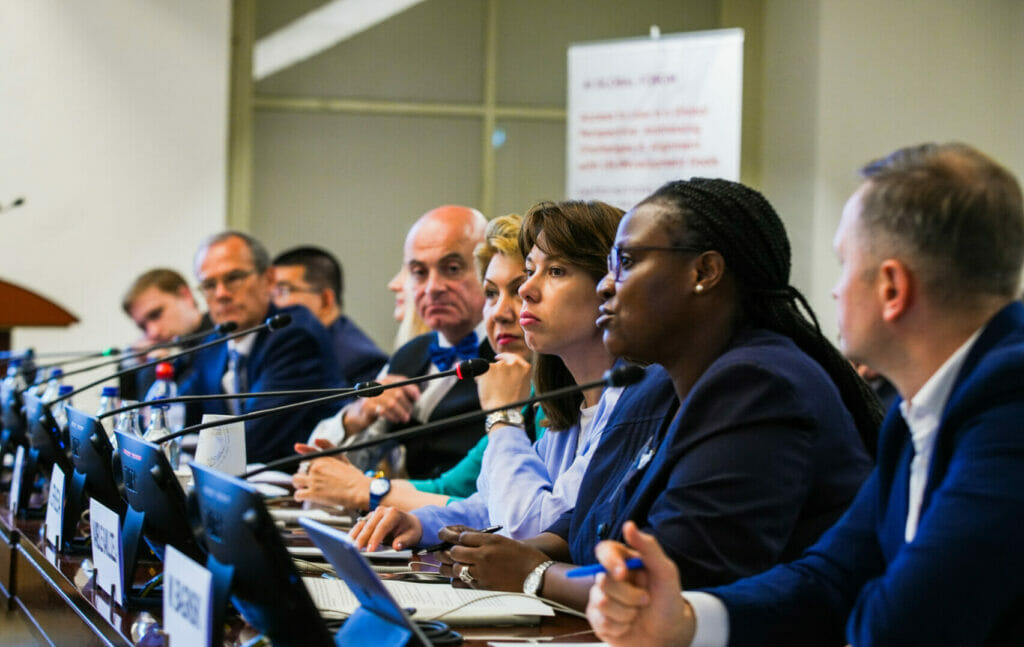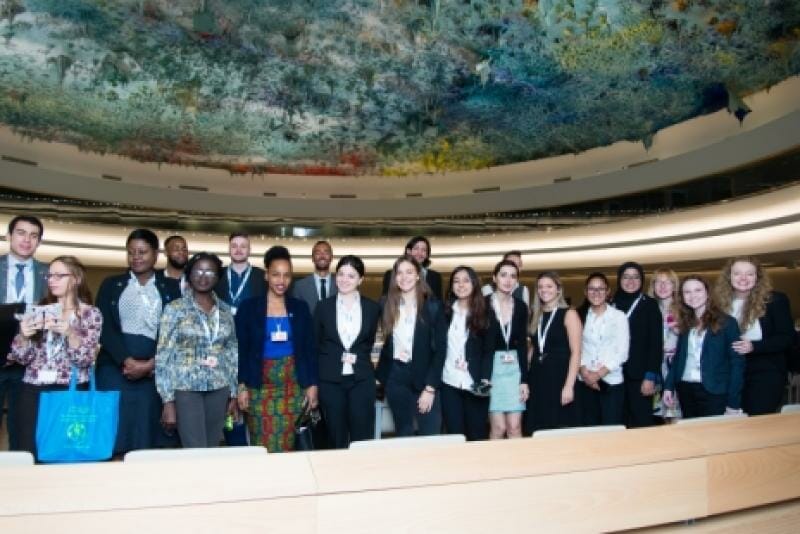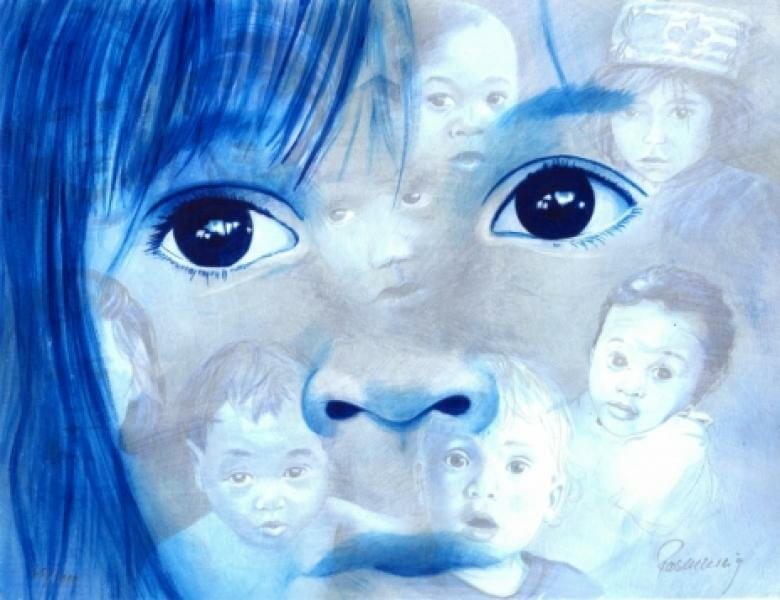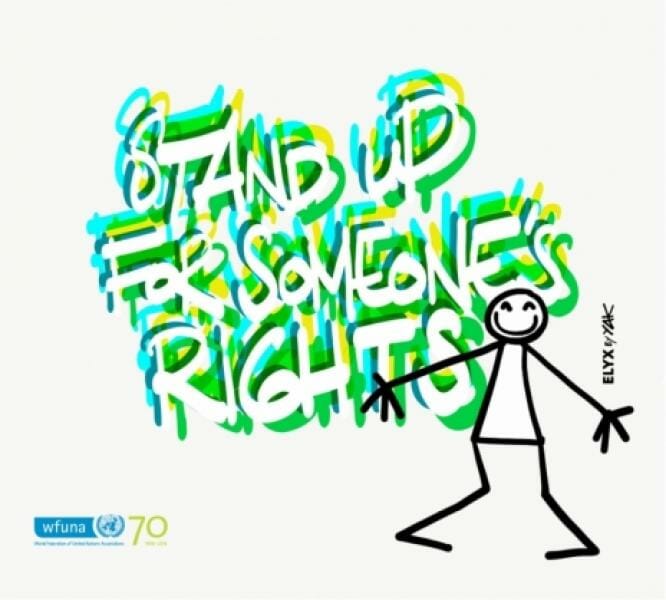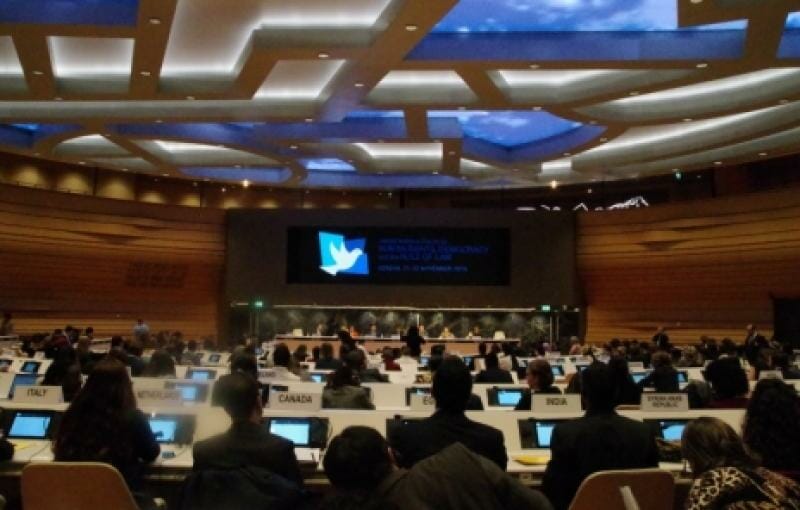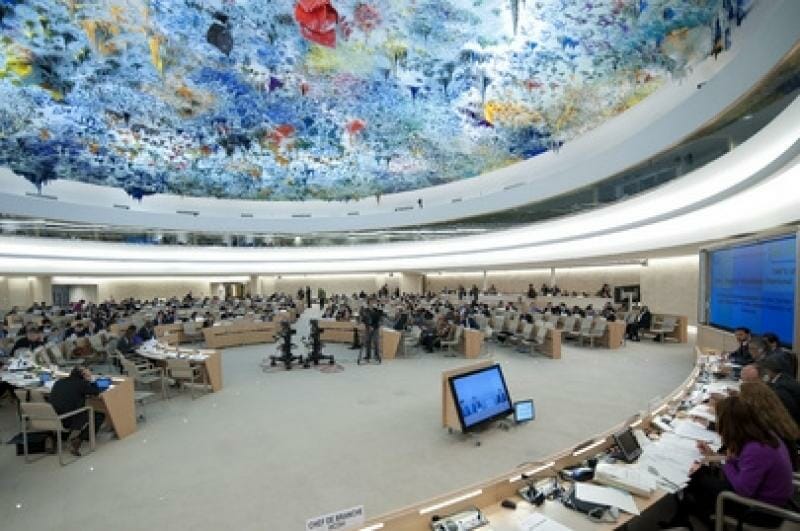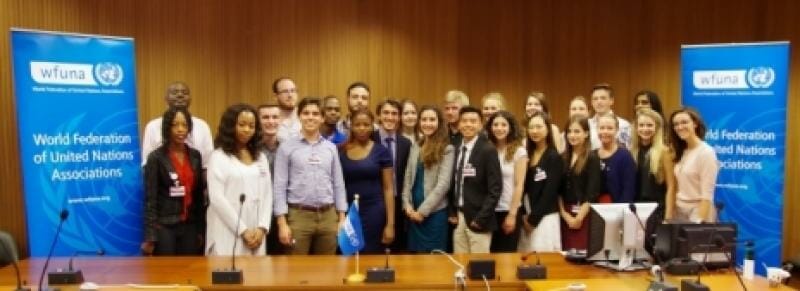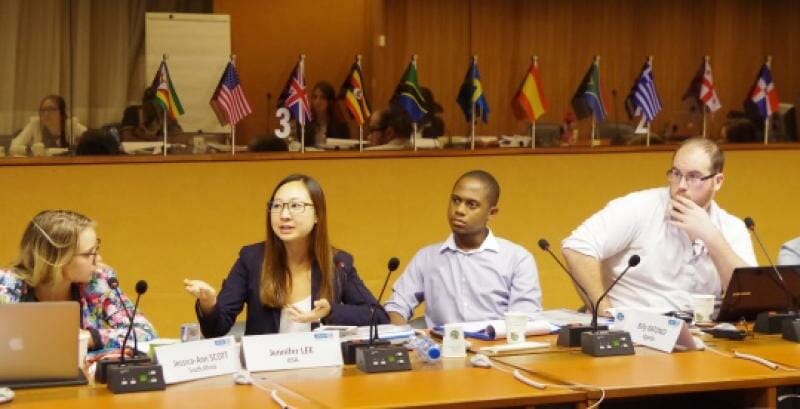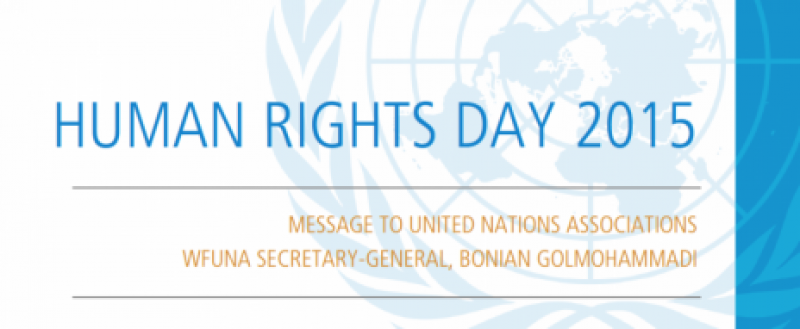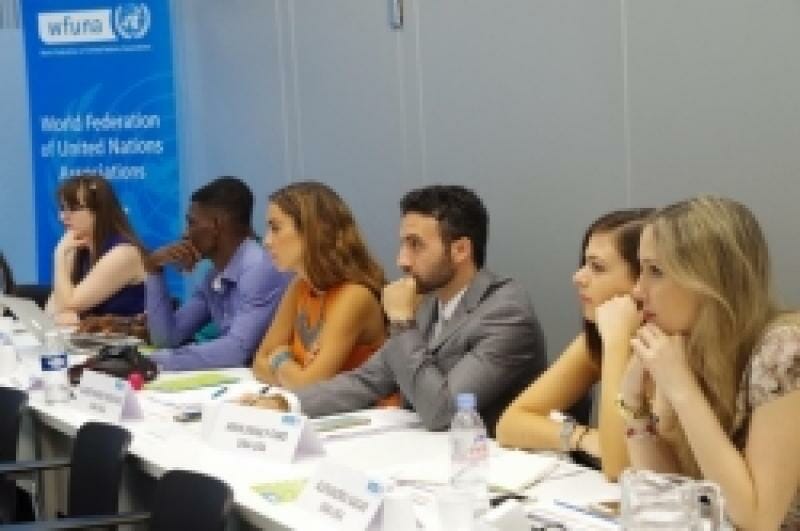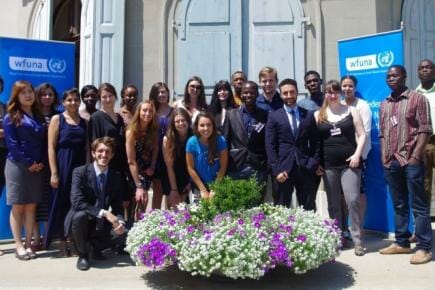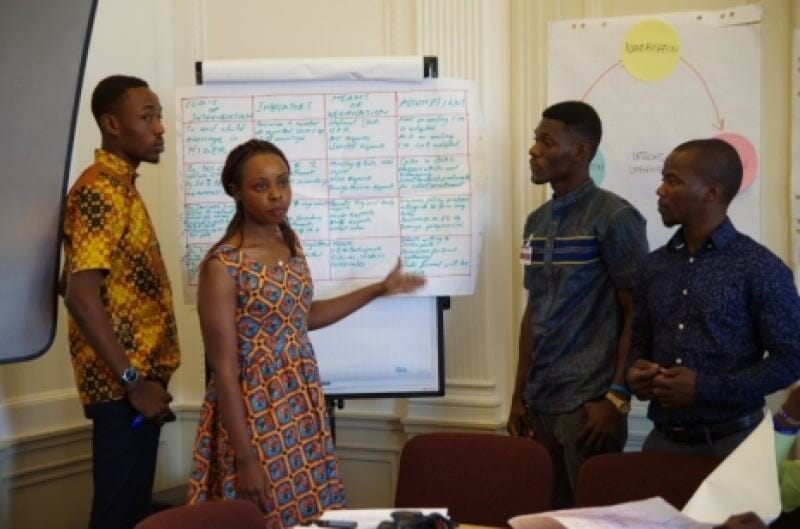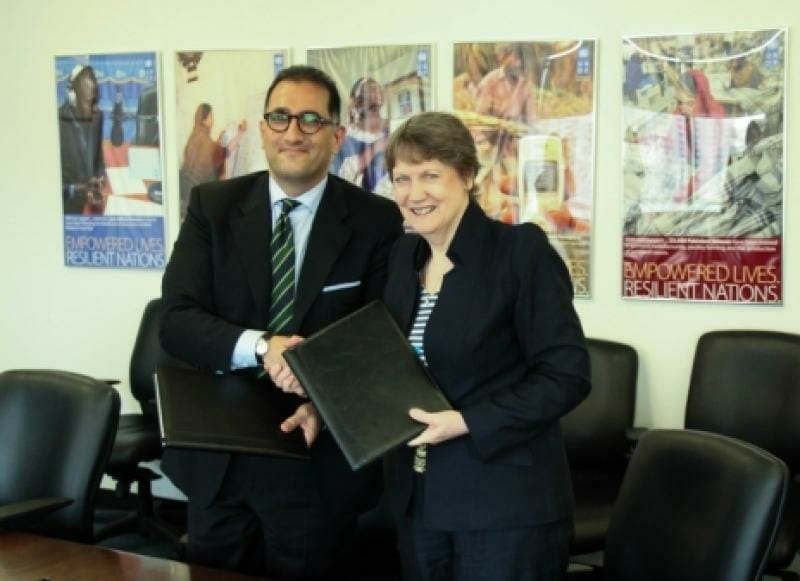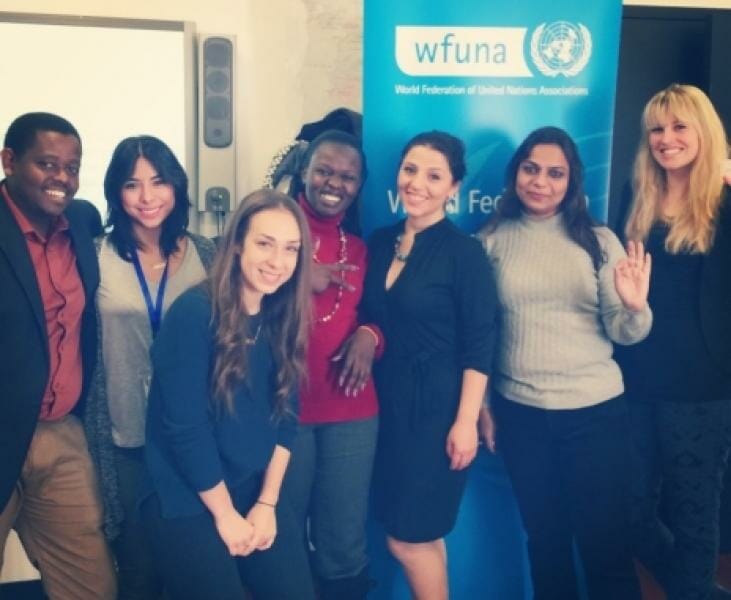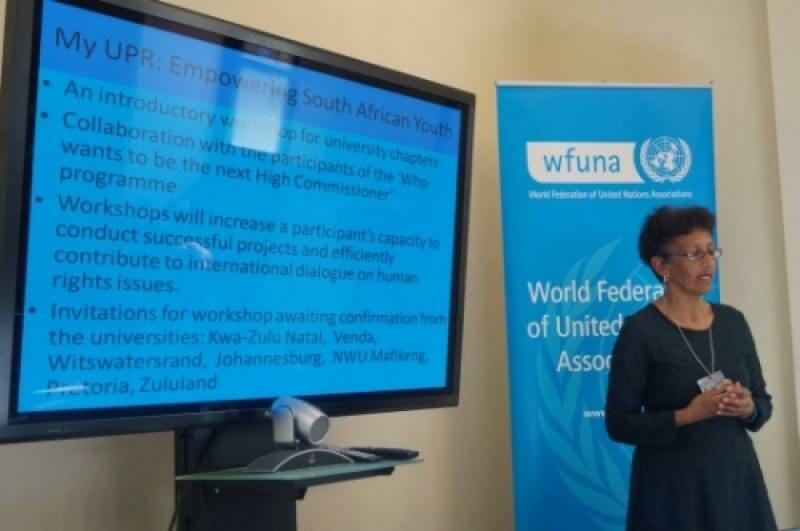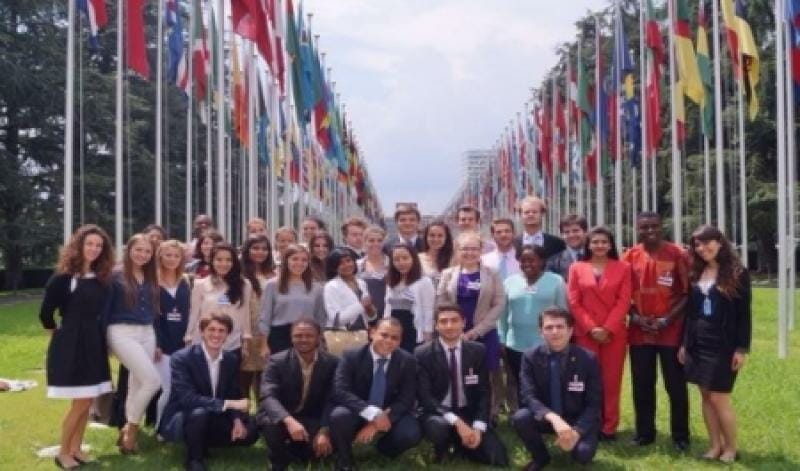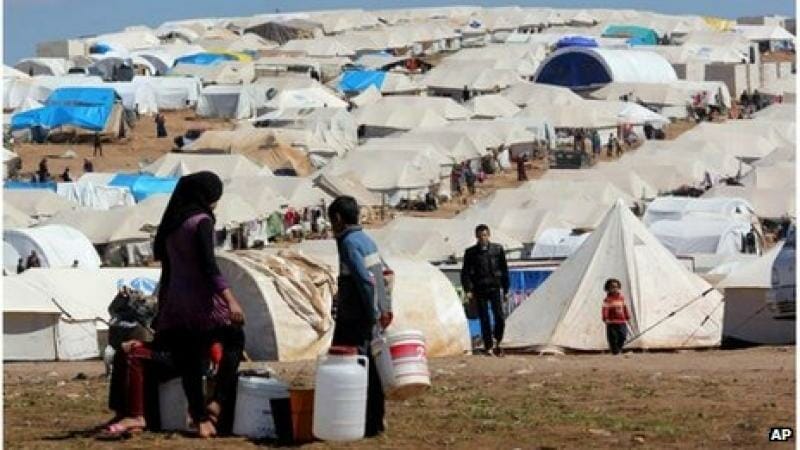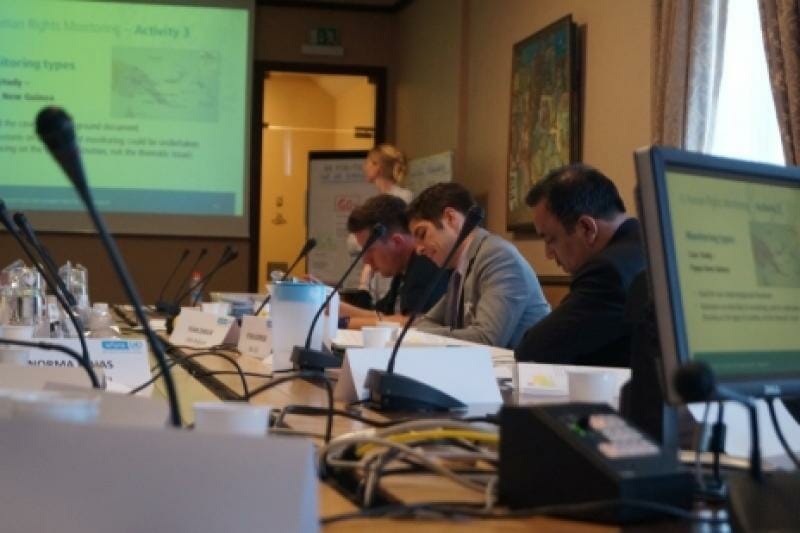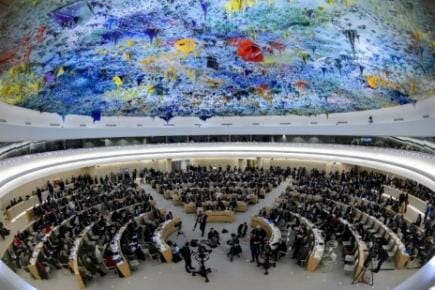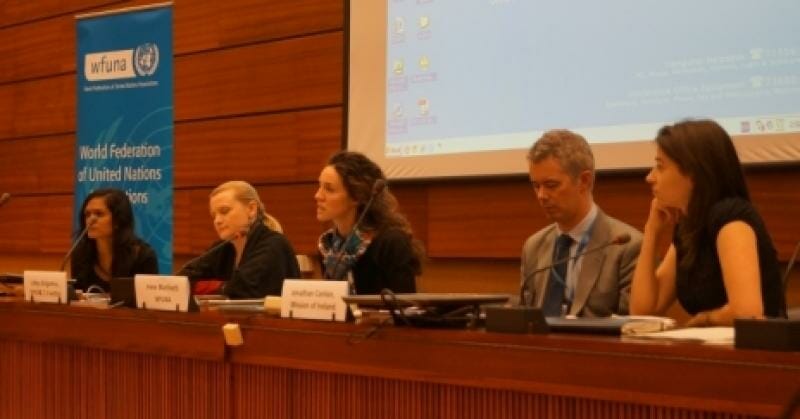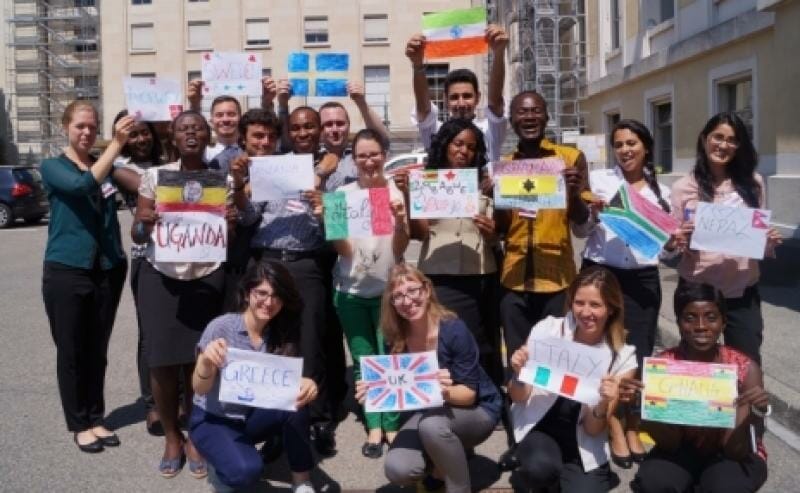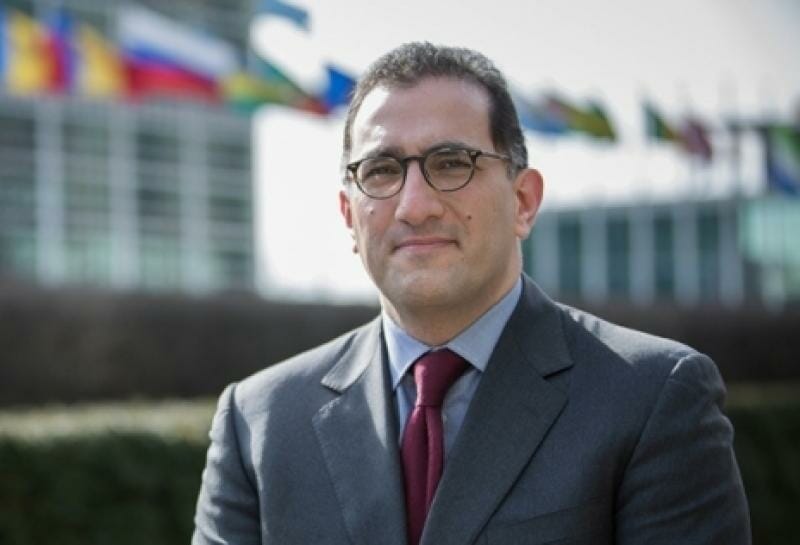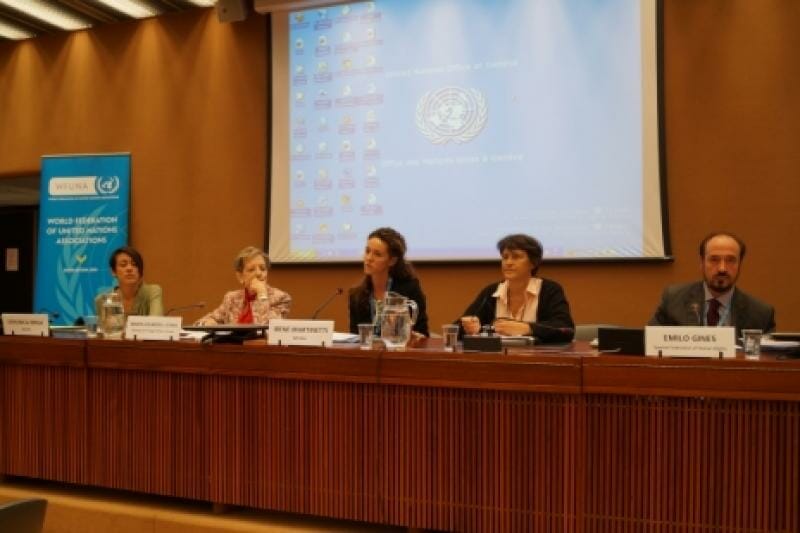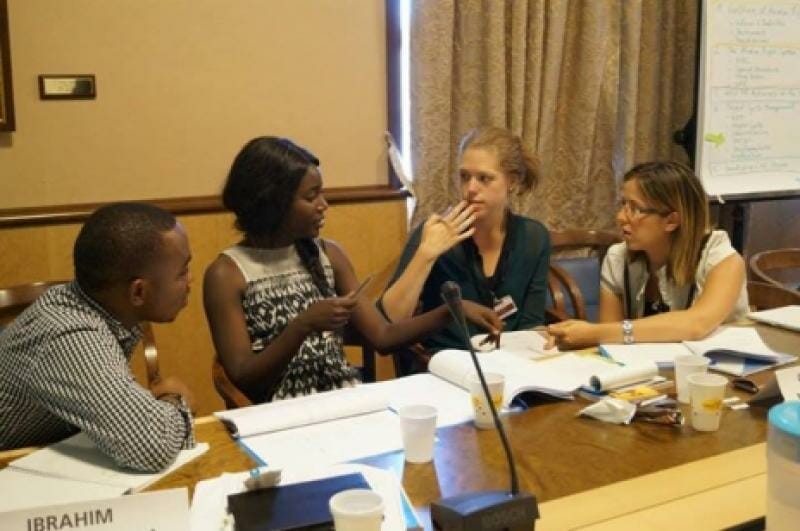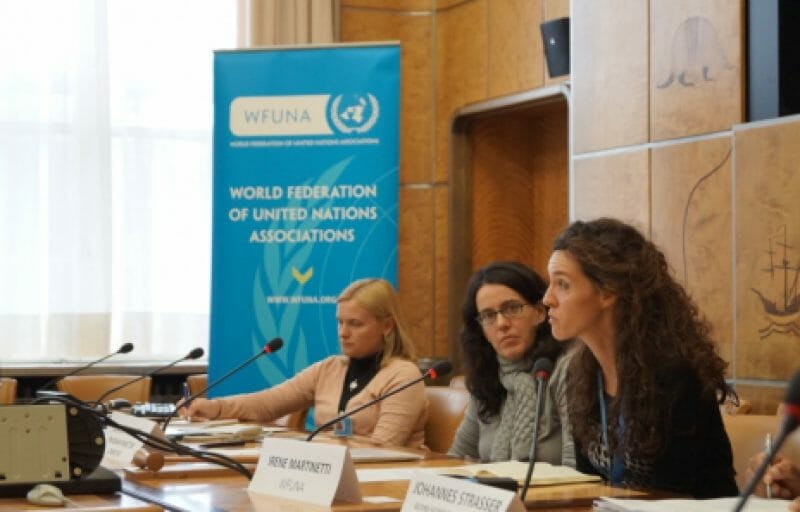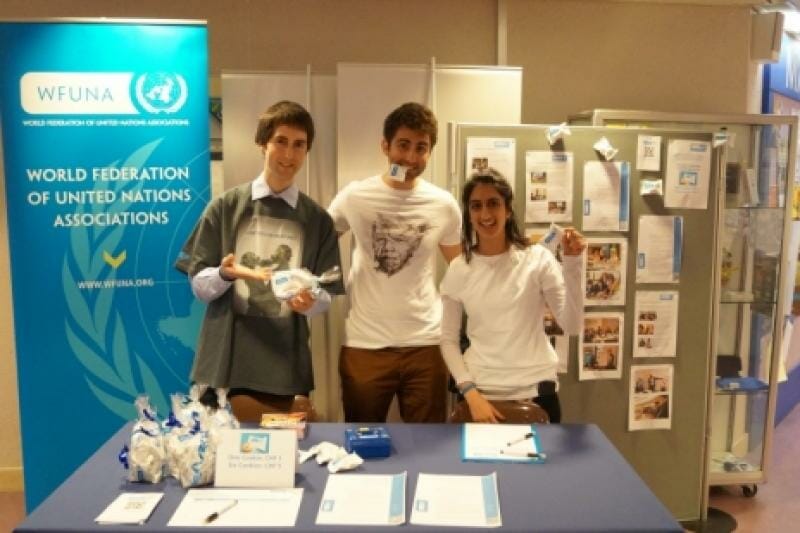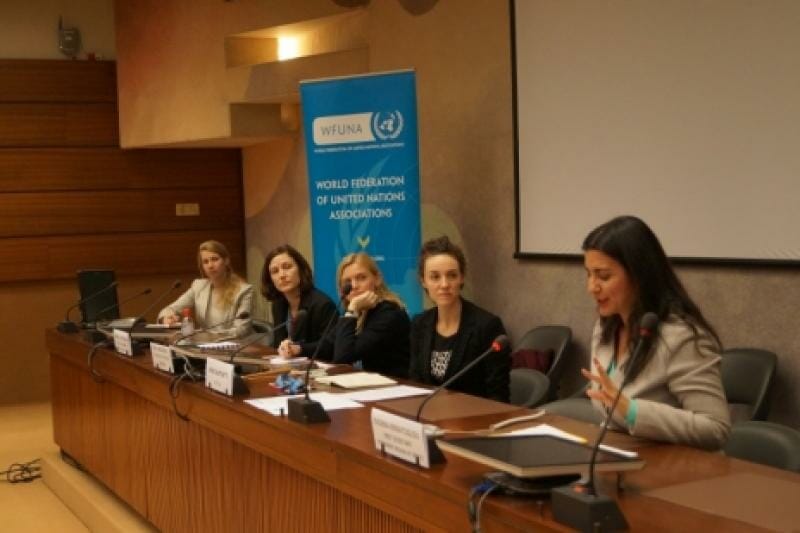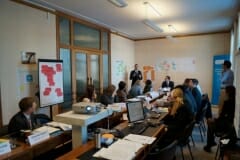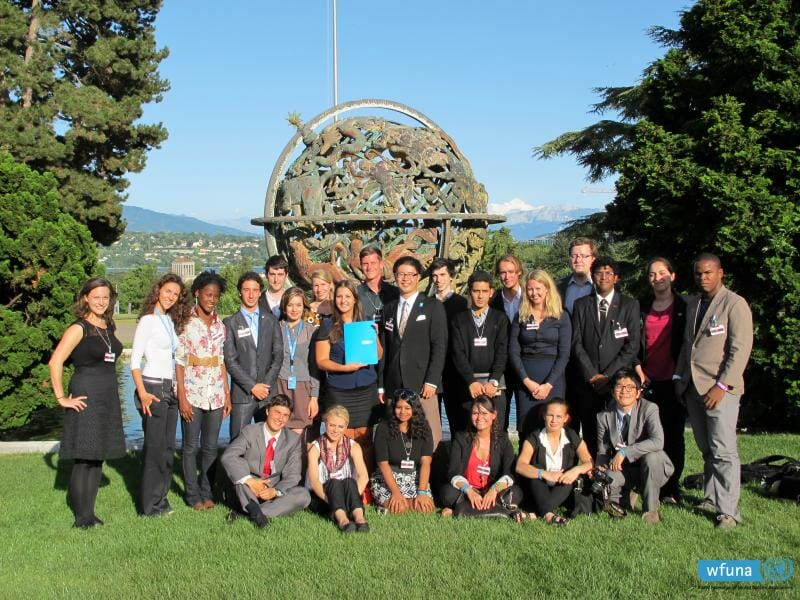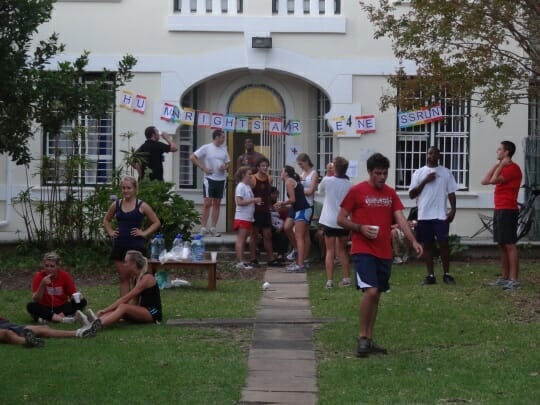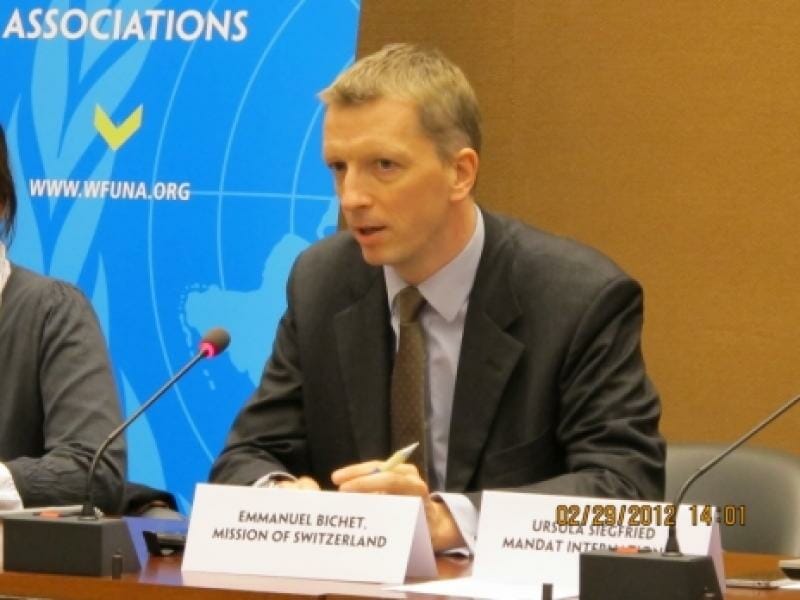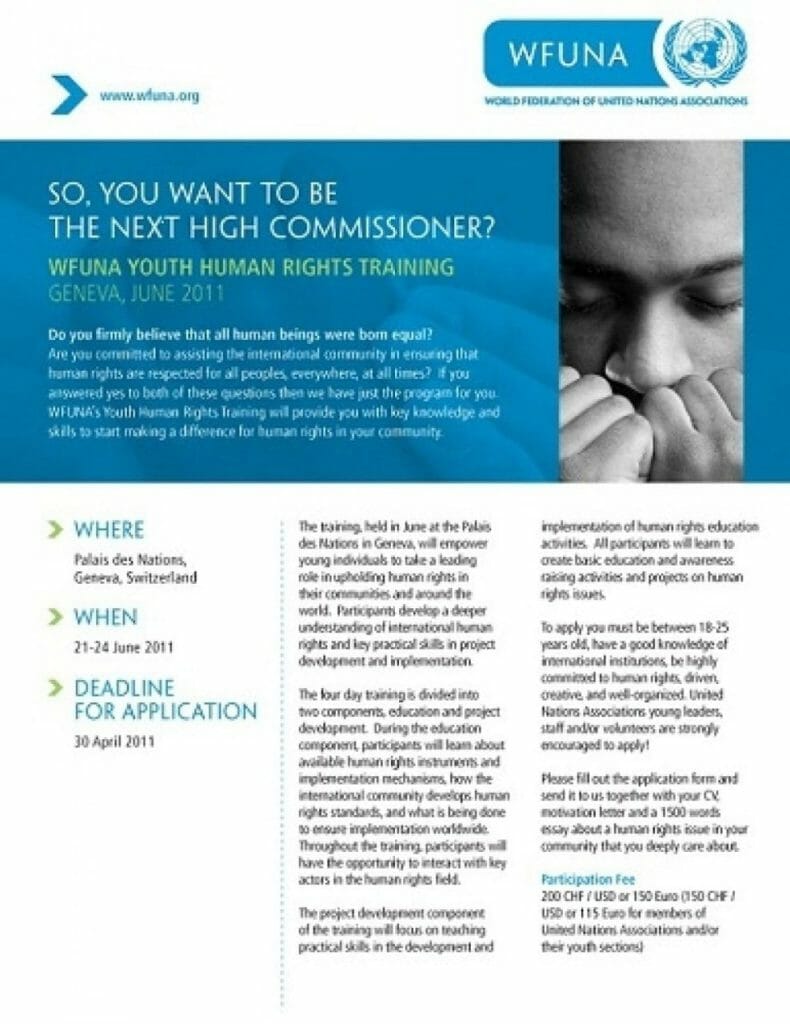GENEVA – The Human Rights Council convened for its 24th Session from 9 to 27 September 2013 in the Palais des Nations in Geneva. In the three weeks of intense discussion, human rights violations in the Syrian conflict, as presented by the report of the Commission of Inquiry on Syria, were among the most burning issues addressed. Some of the major topics that were under discussion are briefly summarized below.
Opening remarks by UN High Commissioner for Human Rights
The Human Rights Council opened its 24th Session on 9 September 2013 with a comprehensive update from the High Commissioner for Human Rights, Navi Pillay, on human rights issues around the world. Ms. Pillay stressed that the international community was still failing to react to the atrocities happening in Syria. The High Commissioner also addressed human rights violations in Egypt, Bahrain, Israel, the Occupied Palestinian Territories, Iraq and Sri Lanka, referred to the discrimination against Roma and other migrants in various European countries, and showed concerns about issues such as the economic crisis and food security.
In the general debate that followed the update of the High Commissioner, speakers especially expressed concerns about the violent situations in Syria and Egypt. Concerns were also expressed with regards to the human rights of Palestinian people, as well as the human rights situation in Bahrain, Myanmar, Central African Republic and South Sudan, among others. Another point raised was the impact of national surveillance regimes in Western countries.
Children in Armed Conflict
On the morning of 10 September 2013, the Human Rights Council held an interactive dialogue with the Special Representative on children in armed conflict, Leila Zerrougui. She opened her report by deploring that too many children around the world cannot attend school because of war and conflict. According to her report, Somalia remained the country with the largest number of children in armed forces. But also the Central African Republic and the Eastern Democratic Republic of the Congo witnessed large numbers of child recruitment. She appealed to the Human Rights Council to make children’s rights in times of conflict a priority of its work and mandate.
In the interactive dialogue, delegations expressed their concerns about the disproportionate negative effects of conflicts on innocent children. Although international law provides for special protection of children, the gap between legislation and implementation remains very wide. This is why some delegations called for all-encompassing rehabilitation programmes for former child soldiers to enable their reintegration into civilian life.
Human Rights of Children of Parents Sentenced to the Death Penalty or Executed
On 11 September 2013, the Human Rights Council held a panel discussion on the human rights of children of parents sentenced to the death penalty or executed. UN Deputy High Commissioner, Flavia Pansieri, explained that the execution of a parent could affect the child in such an extent that his or her rights were violated. Apart from direct effects, there was evidence that a child of persons sentenced to death could also be subject to discrimination and social exclusion. The Permanent Representative of Belgium stressed that the state had a responsibility to ensure that those children receive appropriate care and assistance. In the discussion, panelists reiterated that states that decide to apply the death penalty had to take into account the best interest of the child.
Internally Displaced People and Commission of Inquiry on Syria
On 16 September 2013 the Human Rights Council held an interactive dialogue with the Special Rapporteur in the human rights of internally displaced persons and the chairperson of the Commision of Inquiry on Syria. Special Rapporteur Chaloka Beyani presented his report on the situation of internally displaced people in Syria and concluded that the situation had deteriorated. An estimated number of 4.25 million people are internally displaced in Syira. The Chairperson of the COI, Paulo Pinheiro, reported that the fighting raged on in Syria and indiscriminate bombardment of civilians by government forces and extremist armed groups affected many million innocent civilians.
The representative of Syria said that the COI exaggerated the situation and relied too much on unverified reports. He stated that the Commission ignored the negative impact of the unjust economic sanctions on the Syrian people.
Commission of Inquiry on Human Rights in the Democratic People’s Republic of Korea
On 17 September 2013 the Human Rights Council held an interactive dialogue with the Commission of Inquiry on human rights in the Democratic People’s Republic of Korea.
Chairperson of the COI on the Democratic People’s Republic of Korea, Michael Kirby, reported that the North Korean government had so far not cooperated with the Commission and it had to pursue alternative ways to obtain direct and reliable information. Testimonies of victims and experts pointed to serious human rights violations such as torture, forcible repatriation, sexual violence, inhumane treatment, arbitrary detention, abductions, starvation and guilt by association.
The Democratic People’s Republic of Korea totally rejected the update offered by the COI, saying that it was made up by hostile allies aimed at sabotaging the socialist system. They further asserted that human rights were only used as a cover for the EU, Japan and the US to make hostile moves against the country.
Universal Periodic Review
During the 24th Session of the HRC, the UPR reports of Turkmenistan, Burkina Faso, Cape Verde, Colombia, Uzbekistan, Tuvalu, Germany, Djibouti, Canada, Bangladesh, Azerbaijan, Russia, Cameroon and Cuba were adopted. Recommendations and issues discussed during the adoptions mainly concerned freedom of speech, media and assembly, anti-discrimination measures such as equal treatment of women and LGBTI people and human rights of Indigenous peoples.
Putting an end to a discussion that had started in June this year, the President of the Human Rights Council issued a letter during this session, stating that recommendations cannot be placed in the footnotes of UPR reports. During the Working Group, Russia had refused to respond to two recommendations made by Georgia, arguing that these recommendations do not relate to the UPR. These recommendations had therefore been put in the footnotes of the report and not in the body text. The president now decided that all recommendations have to be listed in the body text in order to prevent the weakening of UPR reports and to ensure equal treatment of all recommendations.
Resolutions and Outcomes
On 26 September 2013 the Human Rights Council adopted the 3-year extensions of the following mandates: the Special Rapporteurs on contemporary slavery; the rights to freedom of peaceful assembly and of association; the right of everyone to the enjoyment of the highest attainable standard of physical and mental health; the rights of indigenous peoples; and the Working Groups on arbitrary detention, the use of mercenaries as a means of violating human rights and impeding the exercise of the right of peoples to self-determination. Some of the resolutions adopted are briefly summarized:
A/HRC/24/L.12: Resolution on the World Programme for Human Rights Education
In the third phase of the World Programme for Human Rights Education, the resolution adopted during this session again calls upon states to provide human rights education and training for educators in formal and non-formal education, in particular working with children and to fully integrate human rights education in national school curricula. The resolution decides to make media professionals and journalists the focus group of the third phase of the programme. The resolution was adopted without a vote.
A/HRC/24/L.24: Resolution on creating and maintaining a safe and enabling environment for civil society
The resolution, introduced by Ireland together with Chile, Japan, Sierra Leone and Tunisia, proposes to convene a panel discussion at the twenty-fifth session, on challenges faced by States in their efforts to ensure space for civil society and lessons learnt and good practices in this regard. The resolution calls upon all member states to ensure freedom of peaceful assembly, association, opinion and expression to create positive conditions of civil society and encourage citizen’s participation. The draft was initially rejected by 28 Member States of the Council, was then revised orally and finally adopted without a vote.
A/HRC/24/L.38: Resolution on continuing and grave deterioration of human rights and the humanitarian situation in Syria
The United States introduced a resolution condemning the ongoing violations of international humanitarian law and the abuses of international human rights law in Syria. The resolution also calls for the full access throughout Syria for the UN mandated commission of inquiry and humanitarian agencies. The resolution was adopted by 40 states voting in favor, 1 against (Venezuela) and 6 abstentions.


